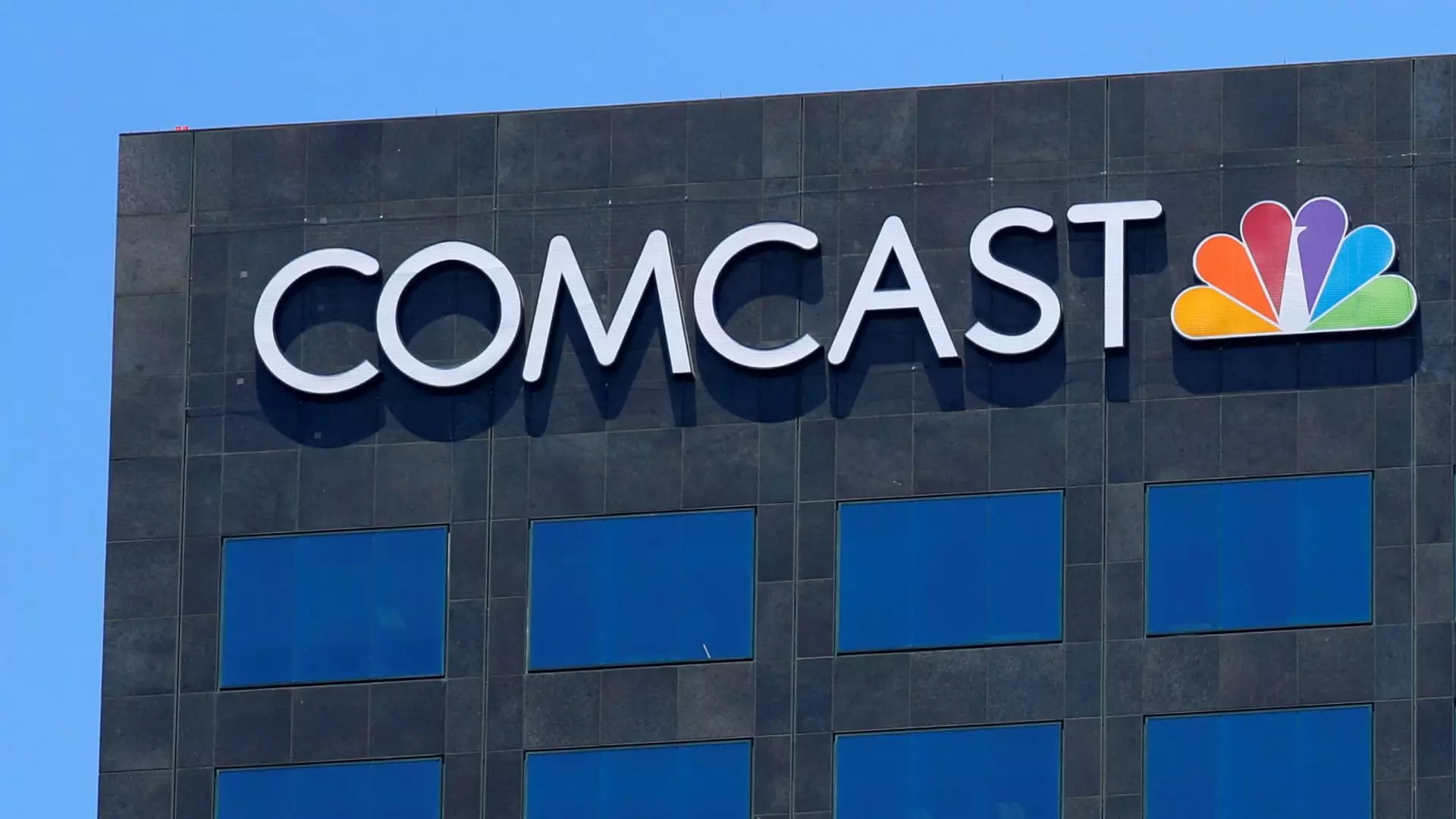As traditional television continues to face significant challenges in the age of streaming, Comcast has made the audacious decision to move forward with the spinoff of its cable network channels. This strategic shift, which is anticipated to unfold over the next year, illustrates a growing acknowledgment within the industry of the need for adaptability and innovation. This article will dissect the implications of this move, analyzing the broader context and potential ramifications for Comcast and the media landscape at large.
The primary impetus for Comcast’s spinoff stems from the ongoing disruption in the television industry. With millions of consumers opting to abandon traditional pay-TV bundles in favor of more flexible streaming alternatives, media conglomerates are compelled to reassess their operational structures and revenue models. By separating its cable networks, Comcast aims to create an agile entity that can explore opportunities such as mergers with other networks or potential acquisitions by private equity firms. This decision is not merely a business maneuver; it is a response to a paradigm shift in consumer behavior that prioritizes on-demand content over linear programming.
The announcement, which is reportedly imminent, underscores the urgency with which Comcast is approaching this transformation. Placing seasoned leaders like Mark Lazarus at the helm of the newly formed entity suggests a commitment to ensuring that the spinoff is executed with expertise and strategic foresight. This change in leadership indicates that Comcast is not only focused on the operational aspects but also on preserving the quality and value of its content offerings as it navigates this transitional period.
From a financial perspective, the newly spun-off entity is expected to maintain a share structure that mirrors that of Comcast, ensuring a seamless transition for shareholders. The prospect of a tax-free spinoff will likely be well-received by investors, as it potentially enhances the value of the new company without imposing additional burdens in the form of taxes. This financial structuring is critical in attracting investor interest and legitimizing the spinoff as a forward-thinking, value-enhancing initiative.
The operational framework of the new entity will be buttressed by experienced executives. Anand Kini, the Chief Financial Officer of NBCUniversal, will serve as CFO of the new corporation, illustrating a continuity of financial leadership that is essential for establishing credibility with investors and stakeholders. This carefully designed executive structure not only serves to stabilize the new entity but also reinforces Comcast’s commitment to maintaining high standards of governance and operational efficiency.
As Comcast reorganizes its media portfolio, it also reflects broader trends within the industry where traditional TV networks, despite facing challenges from cord-cutting, still represent significant revenue streams for major corporations. In its recent quarterly earnings report, Comcast highlighted a remarkable 37% increase in revenue within its media segment, primarily driven by blockbuster events like the Olympics. This demonstrates that, while the landscape is undeniably shifting towards streaming services, traditional networks still hold substantial financial power.
Moreover, the spinoff embodies a strategic pivot towards enhancing digital platforms, as evidenced by Comcast’s investments in its streaming service, Peacock. Despite traditional television’s declining subscriber base, the cash flow generated from these cable networks can be utilized to bolster and expand their streaming capabilities, ultimately positioning Comcast favorably in the competitive streaming landscape.
Comcast’s decision to spin off its cable network channels is a multifaceted strategy aimed at navigating the complexities of a rapidly evolving media landscape. By creating an independent entity, the company is poised to unlock new opportunities and streamline operations in response to the changing dynamics of consumer behavior. While the spinoff presents challenges—particularly in aligning existing content and licensing agreements—it also offers potential for revitalization and growth in an increasingly digital world.
As viewers continue to gravitate towards personalized and on-demand content options, Comcast’s ability to adapt and innovate will be crucial. The decisions made over the next year will define not only the future of the new entity but also Comcast’s standing within the broader media landscape. Only time will reveal whether this spinoff will be a strategic masterstroke or merely a stopgap in an industry rife with uncertainty.


Leave a Reply